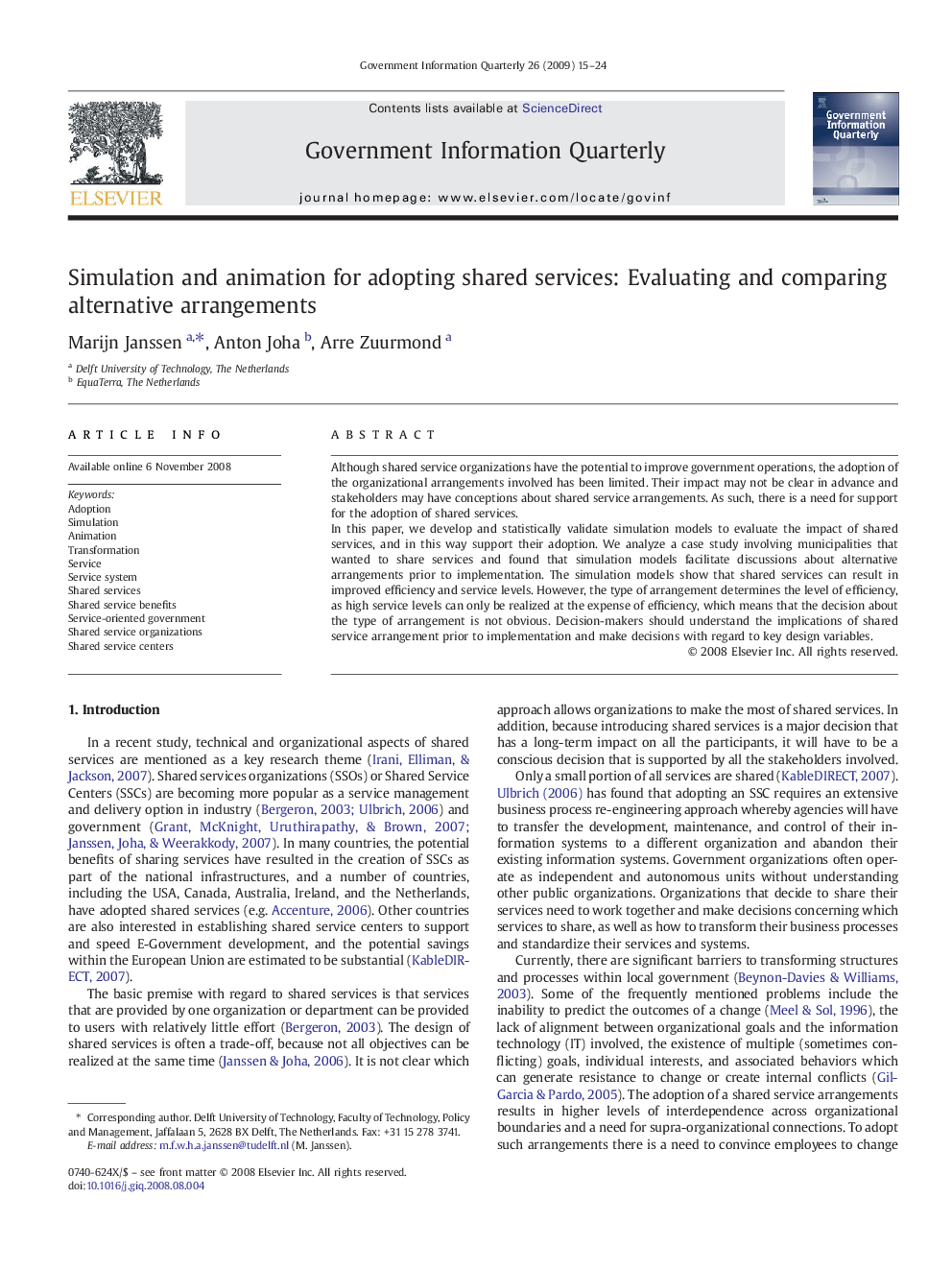| Article ID | Journal | Published Year | Pages | File Type |
|---|---|---|---|---|
| 1024779 | Government Information Quarterly | 2009 | 10 Pages |
Although shared service organizations have the potential to improve government operations, the adoption of the organizational arrangements involved has been limited. Their impact may not be clear in advance and stakeholders may have conceptions about shared service arrangements. As such, there is a need for support for the adoption of shared services.In this paper, we develop and statistically validate simulation models to evaluate the impact of shared services, and in this way support their adoption. We analyze a case study involving municipalities that wanted to share services and found that simulation models facilitate discussions about alternative arrangements prior to implementation. The simulation models show that shared services can result in improved efficiency and service levels. However, the type of arrangement determines the level of efficiency, as high service levels can only be realized at the expense of efficiency, which means that the decision about the type of arrangement is not obvious. Decision-makers should understand the implications of shared service arrangement prior to implementation and make decisions with regard to key design variables.
